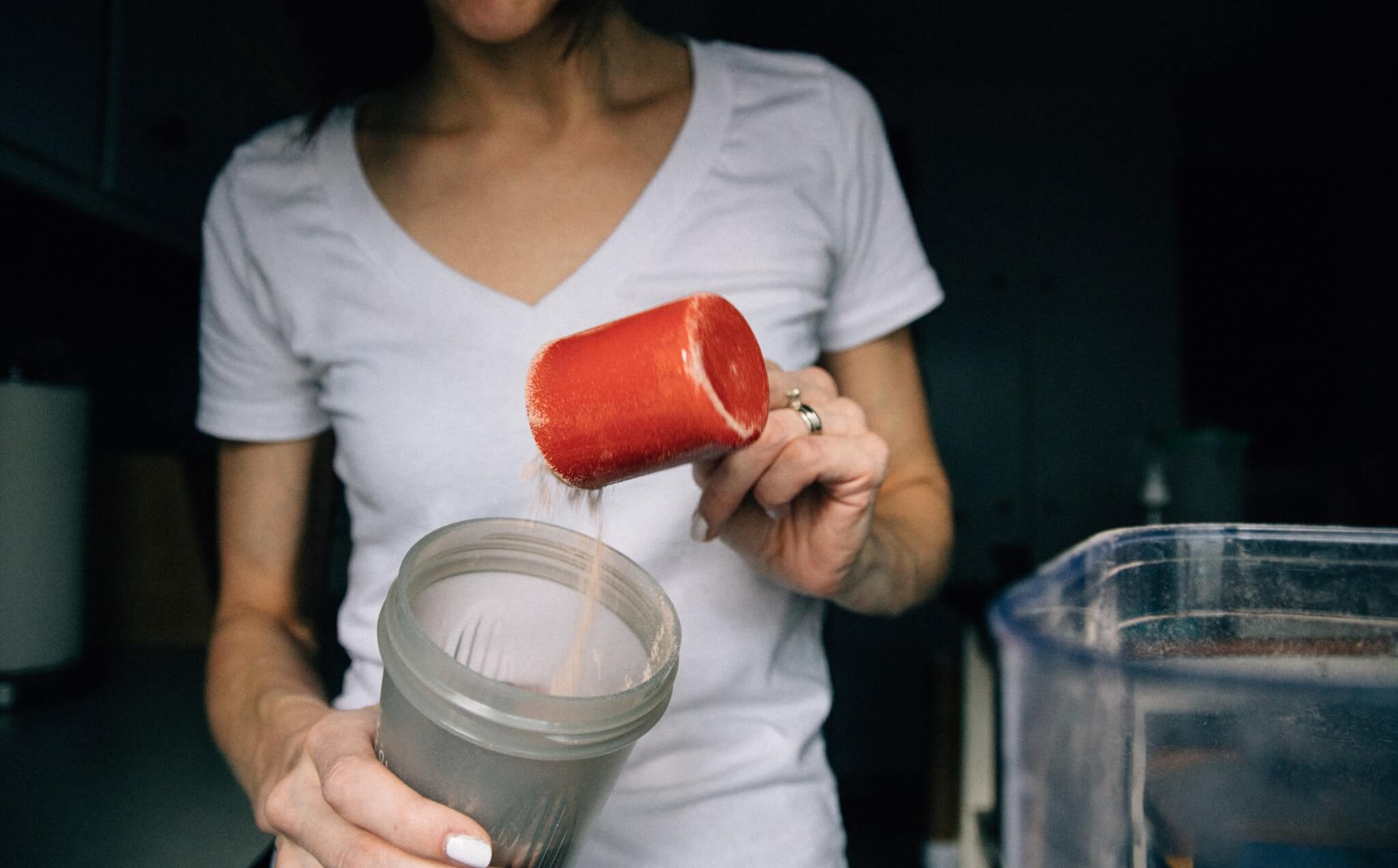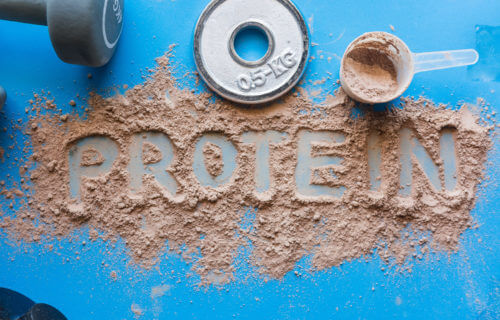Expert reveals what you need to know when comparing whey protein concentrate, isolate, and hydrolysate
Whey protein powder supplements get a lot of attention these days. With fitness being more mainstream than ever and supplement companies doing a great job of selling images of the ideal body, health-minded individuals are opening their wallets to bulk up. But if you walk down the aisles of your local supplement store, or even Target and Walmart, you may be confused as to which type of whey protein is the best option. Should you buy whey protein isolate, concentrate, or hydrolysate? And if you’re in the market for protein powder, you’re likely trying to transform your body, which makes the decision crucial.
We want to make that decision much easier for you. It’s essential, first, that you understand why you’re taking protein to begin with. Then you should familiarize yourself with these different types of whey protein powders.
Why Protein Matters
Protein is the building block of muscle. Its importance, however, reaches far beyond simply helping to add mass to your frame. It plays a role in the creation and maintenance of every cell in your body. So, regardless of whether your goal is to get larger, smaller, or maintain your size, protein plays a vital role. This macronutrient is essential for overall health, and moderate consumption of it may increase your lifespan.
In a recent study, researchers at Waseda University found that consuming a balanced diet and moderate amounts of protein can have a positive impact on metabolism while also slowing the aging process. But do keep in mind that protein powder should not make up the bulk of your protein consumption or diet, no supplement should.
Getting your protein from whole food sources must always be a priority. If you’re not reaching your protein intake goals through food alone because of your schedule or other obstacles, then supplementing with a powder is useful. But are these powders good for you?
Just How Healthy Are Protein Powders?
The answer to this question is, it depends. Supplements are not FDA-approved for any purpose. The supplement industry is largely unregulated, so it’s important to do your due diligence and read labels.

Many protein supplements contain high amounts of sugar, which seems counterintuitive for a health product, but companies are in the business of selling products, and adding sugar means adding flavor and likely dollars to their bottom line. You’ll also want to keep an eye on fat content to make sure it aligns with your dietary goals. Adding fat is another way to add flavor, and many products that are low in sugar boost the flavor by adding fat.
Chemical contaminants are the other thing to watch for. There’s ample evidence of companies knowingly adding harmful chemicals to consumer products without revealing it, such as in this research about forever chemicals. Ideally, you’ll want to choose from products that are third-party tested. This means that the product is tested by another organization to ensure that what you read on the label is actually what is in the bottle.
How Do Whey Concentrate, Isolate, and Hydrolysate Differ?
Whey Protein Concentrate
If you pick up a jug of protein with a label that reads, “100% Whey Protein,” it contains concentrate.
What this means is that about 70-80% of the powder you scoop out will contain protein. The rest will contain some lactose and fat. So, whey protein concentrate is not the purest form of protein, but it is typically the tastiest. The lactose and fat help in that department.
Whey Protein Isolate
Whey protein isolate is also found in most of the jugs of protein-containing concentrate. If you read the ingredients, most will list a blend of concentrate and isolate as the first ingredients. Isolate alone contains about 90% protein or higher, so it is more densely packed with protein than concentrate.
Of course, with higher concentrations of protein, the fat and lactose content is lower, along with many nutrients found in concentrate. And with the amount of protein increasing so too does the price tag. Isolate protein supplements are generally going to sell at a higher price point than concentrate.
Whey Protein Hydrolysate
Also known as hydrolyzed whey protein, this is considered top-shelf stuff, with jugs or bags of this protein often selling for close to or exceeding $100. Hydrolysate contains 90-94% protein but be warned, purity impacts not just price but also flavor. Some hydrolysate products are a challenge to choke down.
In addition to the high protein content, this protein is also pre-digested, which means it’ll be absorbed by your body faster than concentrate or isolate will. This can come in handy after workouts when your body is primed to soak up nutrients to start the recovery process. Bioavailability is also reportedly higher, meaning your body may be able to soak up more of the protein. I say ‘may’ because your genetics will also play a role.
Final Thoughts: It’s A No-Brainer, Right?
If we use the ‘more is better’ line of thinking that so many people use, then the choice here seems obvious, whey protein hydrolysate wins. But not so fast. Hydrolysate may be easier to digest for some people, and it may even be better for those who are worried about allergies, but it will not help you reach your fitness goals any easier or faster than concentrate, isolate, or a blend of the two.
Most people who can consume whey products will do just fine with a 100% whey protein powder. It’ll likely contain a blend of proteins anyway. Many of the lower-priced protein powders will help you reach your fitness goals just as well as the top-shelf products. Your exercise regimen and diet play more of a role than any protein powder you choose.
Saving money on protein powder by buying a reputable but basic whey product that contains clean ingredients, and then spending the savings on high-quality, nutrient-dense foods is a path to results and optimal health. But if you want the best of the best, there’s no harm in reaching for the top shelf. Just know that hydrolysate will not help you build more muscle or strength, or help you lose more fat, any better or faster than concentrate, isolate, or a blend of the two. Your choices in the kitchen and in the gym matter more than your choice of protein.
